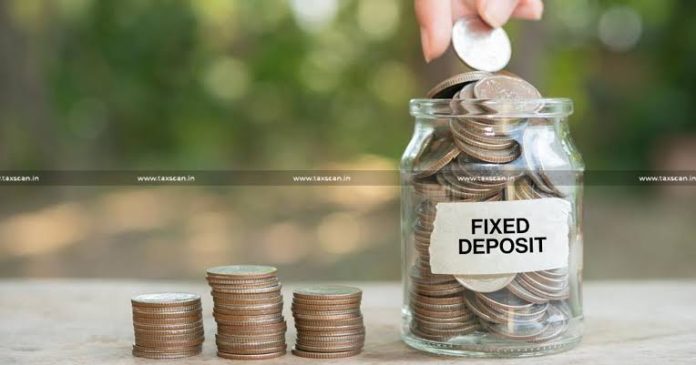Fixed Deposit (FD) accounts are one of the most popular investment avenues in India, as they offer stability and pose a lower risk to the investor. Banks generally offer FDs that have a flexible tenure that can range between a few days to several years. Another category of FDs that banks offer is tax-saving FDs that have a five-year lock-in period and that help customers benefit from tax deductions. This article elaborates on how customers can save taxes by investing in tax-saving FDs.
What is a tax-saving FD?
Tax-saving FDs are aimed at helping individuals claim a tax deduction under section 80C of the Income Tax Act, 1961. Banks generally offer two types of tax-saving fixed deposit accounts – single-holder deposits and joint-holder deposits. If a customer opts for a joint-holder tax-saving FD, only the first holder will be eligible for the tax benefit. The Income Tax department extends deductions under section 80C to eligible individuals and Hindu Undivided Families (HUFs).
What are the key features of tax-saving FDs?
Here are the key features of tax-saving fixed deposit schemes:
| Feature | |
| Tax benefits | Individuals can benefit from a tax exemption of up to ₹1.5 lakh under section 80C of the Income Tax Act, 1961. |
| Lock-in period | Tax-saving FDs have a five-year-long lock-in period. |
| Taxable interest | The interest earned through tax-saving FDs is taxable. |
| No premature withdrawals | Unlike regular FDs, tax-saving FDs do not offer premature withdrawals or the loan-against-FD facility. |
| No auto-renewal option | Banks do not offer the auto-renewal option for a tax-saving FD. |
| Interest payouts are flexible | Customers can choose to receive their interest payouts monthly or quarterly. |
| Joint accounts can be opened | Customers can also choose to open a joint FD account with another individual. However, only the first depositor can avail of the tax benefits. |
What are the benefits of opening a tax-saving fixed deposit account?
The primary advantage of investing in a tax-saving FD is the tax benefit – customers can claim a deduction of up to ₹1.5 lakh under section 80C. Other than this, tax-saving fixed deposits offer the following benefits:
- Tax-saving FDs are safe investments: Like regular FDs, tax-saving fixed deposit schemes are not affected by market volatility; and their interest rates remain fixed until maturity.
- They have a flexible deposit amount: Most banks offer customers the option of depositing an amount of their choice while investing in a tax-saving FD.
- Customers can make a one-time lump sum deposit: Customers who have considerable surplus savings can benefit from the one-time lump sum feature of tax-saving FDs to make their investment in one go and reduce their taxable income by ₹1.5 lakh.
What are the eligibility criteria for investing in tax-saving FDs?
The following entities or individuals are eligible to invest in a tax-saving fixed deposit scheme:
- Individuals and Hindu Undivided Families (HUFs) can invest in tax-saving FDs.
- Individuals must be Indian residents to be eligible for a tax-saving FD investment.
- Minors can open tax-saving FDs jointly with an adult.
To sum up
Individuals who wish to save taxes through tax-saving FDs must make a lump sum investment in a tax-saving FD for five years. Banks like IndusInd Bank offer interest rates of up to 7.25% p.a. through their tax-saver FD schemes. IndusInd Bank also offers a hassle-free instant FD account-opening procedure that is 100% digital. Individuals can also use an FD returns calculator to calculate their FD returns on maturity before investing.








